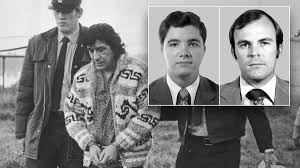The Case of Leonard Peltier
The impending parole hearing of Leonard Peltier, a prominent indigenous activist convicted of the 1975 killings of two FBI agents, has sparked intense debate and garnered widespread attention. As Peltier, now 79 years old, awaits what could potentially be his final chance for parole, diverging opinions and strong sentiments have emerged regarding his release.
1. The Story Unfolds
On June 26, 1975, FBI special agents Ronald Williams and Jack Coler were engaged in a search for armed robbery suspects within the Oglala Sioux Indian Reservation in Pine Ridge, South Dakota. Although Leonard Peltier was not among the suspects, his presence in a vehicle that drew the agents’ suspicion led to a fateful encounter that resulted in gunfire and the deaths of the two agents.
2. Legal Ramifications
Peltier was subsequently convicted and sentenced to two consecutive life terms for the killings, along with an additional seven years for an attempted escape. His case has since become a focal point for discussions surrounding indigenous rights, law enforcement accountability, and the broader implications of his incarceration.
The Debate: Perspectives on Peltier’s Parole
While Leonard Peltier enjoys staunch support from various left-wing advocates and a segment of Democratic lawmakers, the FBI Agents Association adamantly opposes his potential release. As the federal Parole Commission prepares to weigh the merits of his parole application, contrasting viewpoints underscore the complexities of his case.
1. Advocates for Release
Supporters of Peltier argue for his release based on concerns over procedural irregularities during his trial, allegations of government misconduct, and the broader context of historical injustices faced by indigenous communities. They emphasize his role as a symbol of resistance and call for compassion in considering his advanced age and health concerns.
2. Opposition to Parole
Conversely, opponents of Peltier’s parole cite the gravity of his crimes and emphasize the need for accountability and respect for the rule of law. The FBI Agents Association, in particular, vehemently opposes any prospect of his release, citing the enduring pain and loss experienced by the families of the slain agents.
A Case of Consequence
As Leonard Peltier awaits his final parole hearing, the outcome holds significant implications for various stakeholders and serves as a reflection of broader societal tensions and divisions. While the decision ultimately rests with the Parole Commission, the case of Peltier underscores enduring questions of justice, reconciliation, and the complexities of navigating the intersection of law and activism.




